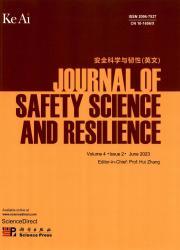A study on predicting crisis information dissemination in epidemic-level public health events
Abstract
Crisis information dissemination plays a key role in the development of emergency responses to epidemic-level public health events. Therefore, clarifying the causes of crisis information dissemination and making accurate predictions to effectively control such situations have attracted extensive attention. Based on media richness theory and persuasion theory, this study constructs an index system of crisis information dissemination impact factors from two aspects: the crisis information publisher and the published crisis information content. A multi-layer perceptron is used to analyze the weight of the index system, and the prediction is transformed into a pattern classification problem to test crisis information dissemination. In this study, COVID-19 is considered a representative event. An experiment is conducted to predict the crisis information dissemination of COVID-19 in two megacities. Data related to COVID-19 from these two megacities are acquired from the well-known Chinese social media platform Weibo. The experimental results show that not only the identity but also the social influence of the information publisher has a significant impact on crisis information dissemination in epidemic-level public health events. Furthermore, the proposed model achieves more than 95% test accuracy, precision rate, recall value and f1-score in the prediction task. The study provides decision-making support for government departments and a guide for correctly disseminating crisis information and public opinion during future epidemic-level public health events.

 求助内容:
求助内容: 应助结果提醒方式:
应助结果提醒方式:


